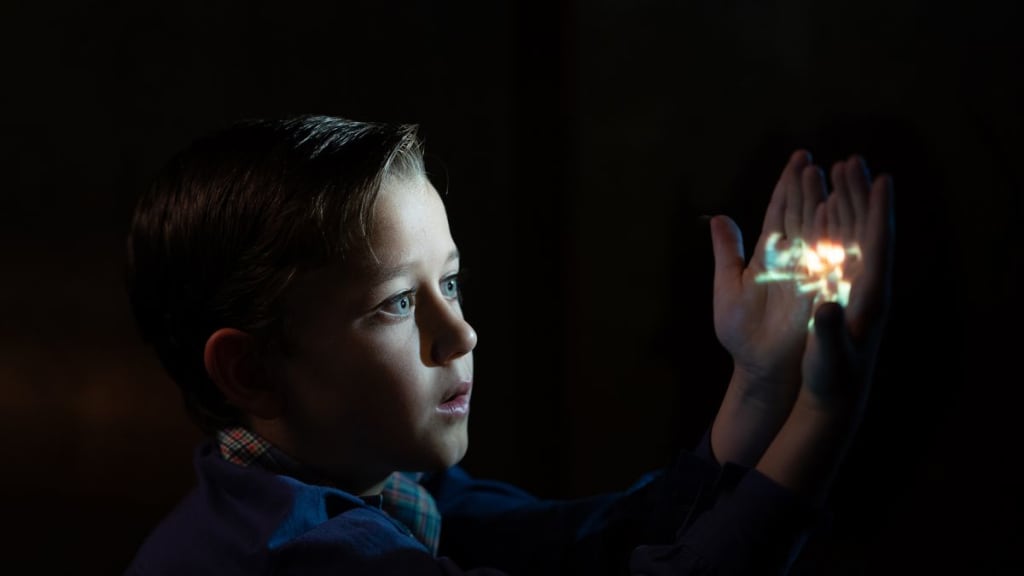
As a master storyteller, Steven Spielberg has entertained audiences for decades with his movies that range from science fiction to historical dramas, action-adventures to comedies. With his latest offering, "The Fabelmans," Spielberg takes a different approach by creating a fictionalized memoir that offers a personal reflection on his own life and work. The result is a beguiling movie that offers us a stunning critical insight into the world of cinema and how artists cauterize childhood pain and rewrite their youth.
"The Fabelmans" tells the story of young Sammy Fabelman, a little kid living in 1950s New Jersey who is hit by cinema as if by a bolt of lightning when he sees Cecil B DeMille’s "The Greatest Show on Earth." Sammy is stunned by the train crash scene, which he obsessively re-stages at home with a toy train set and an 8mm camera. Like most of the movie, this is based on a real event, or anyway a real memory, and Spielberg may also want us to think of Orson Welles’s comment that a movie studio is the “biggest electric train set any boy ever had.”
As Sammy grows up and moves around the country due to his father’s work, finding themselves in Arizona and then in California, he experiences both the joys and sorrows of life. He is bullied and beaten up in high school by anti-Semites and also finds himself in a faintly Alex Portnoy situation, dating a Christian girl who is turned on by a handsome Jewish boy, like Jesus. Despite these challenges, Sammy discovers his passion for storytelling and film-making, ultimately making a name for himself in Hollywood.
What makes "The Fabelmans" such a compelling movie is its ability to blend reality and fiction, taking audiences on a journey through Spielberg's life while also examining broader themes that are relevant to us all. For instance, the movie challenges the notion of movies as a form of "escapism," a lazy and misleading word that suggests that films are a way to avoid reality. Instead, Spielberg argues that movies are all about intervening in real life, reordering the landscape, and addressing frailty and vulnerability candidly but from a position of strength.
At its core, "The Fabelmans" is a coming-of-age story that explores the universal themes of love, loss, and the passage of time. Spielberg delves deep into his own life to offer insights into how childhood trauma and experiences shape our adult lives. Through Sammy's eyes, we see how his parents' troubled marriage, his mother's depression, and his own struggles with identity and acceptance fuel his creativity and drive to succeed.
One of the most poignant scenes in the movie involves Sammy's mother, played by the talented Michelle Williams, who is secretly in love with his dad's employee and pal, Bennie Loewy, played with restraint by Seth Rogen. Despite her love for Bennie, Sammy's mother is unable to leave her marriage, and the affair ultimately tears the family apart. Through this storyline, Spielberg offers a window into the complex family dynamics that shape our lives, as well as the difficult choices that we sometimes have to make in the face of impossible situations.
Throughout the movie, Spielberg weaves in references to classic Hollywood films, paying tribute to the giants of the industry who inspired him as a young filmmaker. The scene in which Sammy gets to meet John Ford, played here by another movie legend that it would be unsporting to reveal in a wonderfully funny and inspirational final scene, is a particular highlight. Through these references, Spielberg invites audiences to see the artistry behind the magic of cinema, highlighting the technical and creative processes that go into making a movie.
About the Creator
Nitin
Nitinbharradwaj is a versatile artist skilled in music composition, songwriting, content creation, blogging, poetry, and video editing. With a passion for creativity and storytelling.





Comments
There are no comments for this story
Be the first to respond and start the conversation.